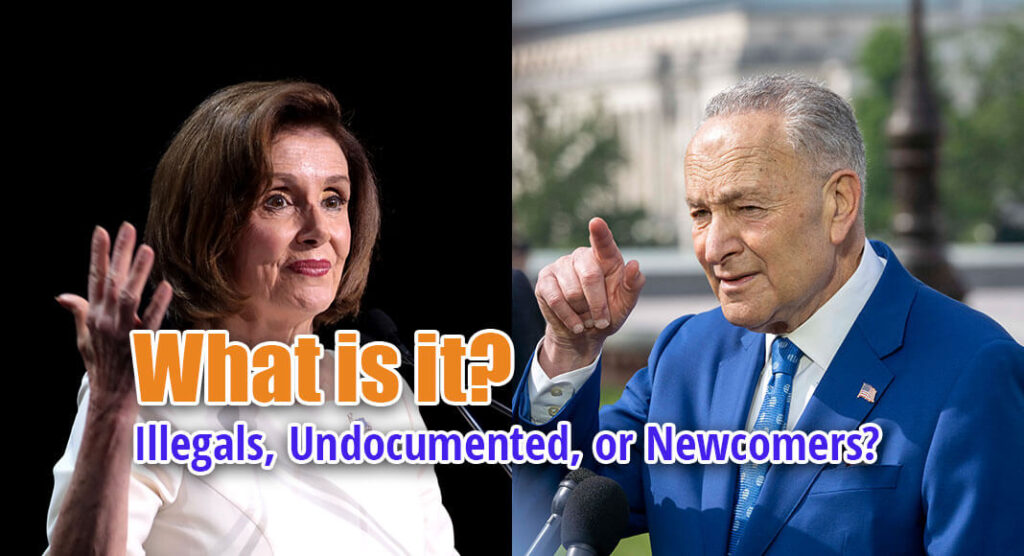
Senator Chuck Schumer (right). Photo by Senate Democrats, CC BY 2.0, via Flickr
Texas Border Business
In the confusing arena of American politics, the discussion surrounding immigration has witnessed profound changes, mirroring the nation’s evolving values and ideologies. The dialogue transformation, particularly within the Democratic Party, reflects a more significant social shift towards understanding and addressing immigration complexities. Senator Chuck Schumer’s remarks in 2009 to Speaker Nancy Pelosi’s comments in 2024 encapsulate this evolution, spotlighting the changing rhetoric from “illegals” to “undocumented” and to “newcomers.”
In 2009, Senator Chuck Schumer’s advocacy for using the term “illegal immigrants” over “undocumented workers” was a deliberate choice to project a solid governmental stance against illegal immigration. Schumer believed that this terminology was essential in signaling the government’s commitment to combatting illegal immigration—most Americans supported his stance. His assertion that Americans are “fundamentally pro-legal immigration and anti-illegal immigration” underscores a period when the discussion heavily leaned towards a legalistic interpretation of immigration, emphasizing the law’s limits.
Fast-forward to 2024. Speaker Nancy Pelosi’s casual approach to the differentiation between “illegal” and “undocumented” marks a significant turn in the party’s narrative on immigration. Her remarks reflect adopting more inclusive language, signaling a shift towards empathy and understanding of the immigrant experience. This rhetorical transition aims to humanize individuals affected by immigration policies, moving away from a dual legal-illegal contrast to acknowledge the distinctions of migration.
This transformation in conversation did not occur in a vacuum. It has been influenced by demographic shifts, changes in the political climate, and a reassessment of immigration’s socioeconomic impacts. The Democratic Party’s base has increasingly advocated for progressive, humane immigration policies, pressuring leadership to align rhetoric with these values, even though the influx of illegals has been classified as an invasion of America. This evolution also aligns with broader global trends towards recognizing the rights and dignities of migrants and refugees.
However, this shift has sparked controversy, highlighting a polarized debate on immigration. Critics argue that moving away from terms like “illegal immigration” may dilute the rule of law’s significance, reflecting a disconnect with segments of the public concerned about immigration’s legal and social implications. This debate underlines the challenging balance between enforcing immigration laws and advocating for compassionate policies that reflect modern realities.
As America continues to navigate these discussions, the shift in terminology from “illegals” to “undocumented” to “newcomers” serves not only as a reflection of changing political rhetoric by democrats when it’s convenient to their plans that no one knows for sure which one is it.
Watch video below:











